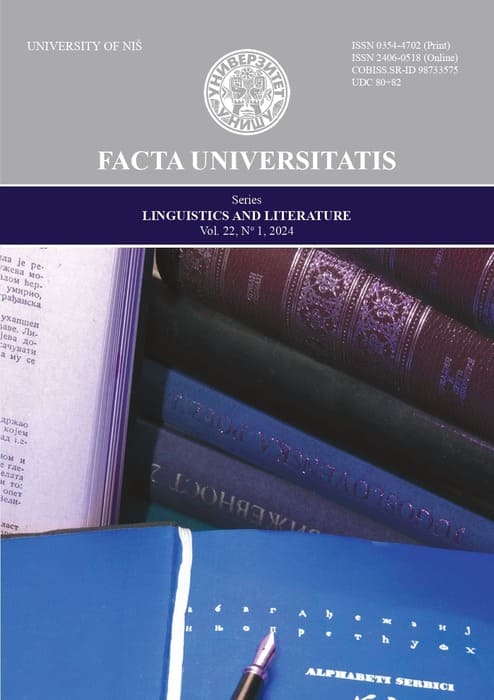ESP STUDENTS’ METACOGNITIVE AWARENESS DEPLOYED IN MAKING A LANGUAGE LEARNING PLAN
ESP STUDENTS’ METACOGNITIVE AWARENESS DEPLOYED IN MAKING A LANGUAGE LEARNING PLAN
Author(s): Maja Stanojević GocićSubject(s): Language and Literature Studies, Foreign languages learning, Applied Linguistics, Language acquisition
Published by: Универзитет у Нишу
Keywords: ESP; language learning strategies; metacognition; language learning plan
Summary/Abstract: Metacognition is a higher order thinking process that presupposes active control over cognitive learning processes. While the teachers should address learning issues in the classroom, the learners ought to be geared toward making conscious decisions about what they can do to improve their learning, especially in terms of planning the learning process. According to research, drawing upon established theories of language acquisition and pedagogical practice, metacognition enables students to employ, retrieve and deploy a particular strategy that has been taught in a particular context and subsequently employ it automatically in other contexts. Thus, students become both aware of their preferred learning strategies, which are efficient for the given task, and more responsible for meeting their learning outcomes. The aim of this study is to explore ESP students’ metacognitive awareness employed in making their language learning plan. A questionnaire was administered to 85 students of Law Faculty in Kosovska Mitrovica studying English for Specific Purposes. Therefore, the role of metacognition in planning learning activities and fulfilling learning objectives is investigated. Possible pedagogical implications include affecting ESP instruction, as well as providing ESP students not only with insight, but also with practical knowledge about planning the language learning process.
Journal: FACTA UNIVERSITATIS - Linguistics and Literature
- Issue Year: 22/2024
- Issue No: 1
- Page Range: 55-62
- Page Count: 8
- Language: English

